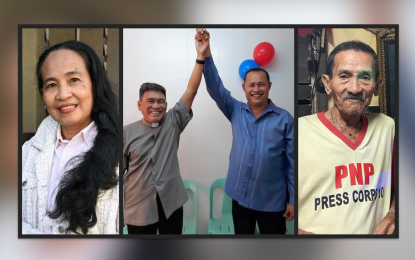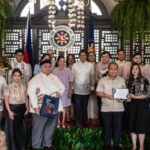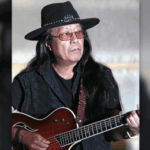CAGAYAN DE ORO CITY — In 2024, the local media community mourned the loss of several colleagues who played a key role in strengthening press freedom and stakeholder relations.
On June 2, Henry Lasola, one of the oldest members of the Cagayan de Oro Press Club (COPC), passed away at the age of 86.
Lasola, a broadcasting veteran, began his career at the now-defunct radio station DXOR and collaborated with various radio stations for decades.
Known for his mastery of the Cebuano language, he participated in numerous translation projects and took part in local history events organized by city authorities.
Lawyer Gil Banaag, publisher of the community newspaper Golden Banner, died on November 2 at the age of 63. He was a member of the COPC board of directors and was highly respected for his work in media and law. He actively participated in civic initiatives, particularly those involving real estate professionals and public sector representatives.
Eighteen days later, Monsignor Elmer Abacahin also passed away at the age of 63. While much of his work was tied to his role in the Catholic Church, Abacahin was a staunch advocate for press freedom.
From 2012 to 2017, he served as the 39th president of COPC, during which he organized rallies in defense of press freedom and spoke out against injustices faced by media workers.
«He was a fierce defender of press freedom, opposing injustices and organizing rallies to protect media workers,» said former labor commissioner Proculo Sarmen in his eulogy.
On December 14, award-winning journalist, poet, and writer Lina Sagaral-Reyes passed away at the age of 63.
COPC described her as an «invaluable member of the media community,» highlighting her contributions as director of the COPC Journalism Institute and her collaborations to improve media practices.
Reyes was also a recipient of the prestigious Palanca Literary Award in 1987 for poetry, underscoring her influence on the Philippine literary scene.
«A multi-awarded journalist and artist, she advocated for women’s rights and improved access to mental health services for all throughout her career,» COPC stated.
Cagayan de Oro Press Club
The Cagayan de Oro Press Club (COPC) is a professional organization established to support and advocate for journalists and media practitioners in Cagayan de Oro City, Philippines. Founded to promote press freedom, ethical journalism, and camaraderie among local reporters, it has played a key role in addressing media-related issues in Northern Mindanao. Over the years, the COPC has also been involved in community initiatives and press freedom campaigns.
DXOR
«DXOR» does not appear to refer to a widely recognized place or cultural site. If you meant a specific location or cultural landmark, please provide additional details or clarify the name (e.g., correct spelling, region, or context). This will help in providing an accurate summary of its history and significance.
Golden Banner
The **Golden Banner** (Chinese: 金旗) is a historical and cultural symbol often associated with military honors or imperial insignia in ancient China. It typically represented high-ranking authority, bravery, or victory in battle, used by emperors or generals to commend troops. While the exact origins vary, such banners were prominent during dynasties like the Qing, where they symbolized elite military divisions. Today, the concept may appear in cultural displays or historical reenactments.
COPC Journalism Institute
The **COPC Journalism Institute** is a training center focused on journalism and media education, often associated with the Chinese Communist Party’s efforts to promote state-aligned reporting and propaganda. Established to cultivate professional journalists, it emphasizes party principles, media ethics, and the role of journalism in serving national interests. Its history reflects China’s broader media landscape, where press freedom is balanced with strict ideological control.
Palanca Literary Award
The **Palanca Literary Award** (Carlos Palanca Memorial Awards for Literature) is the Philippines’ most prestigious and longest-running literary competition, established in 1950 in honor of businessman Don Carlos Palanca Sr. It recognizes outstanding works in various genres, including poetry, short story, essay, and drama, in both English and Filipino. The award has played a key role in shaping Philippine literature by encouraging writers and preserving the country’s literary heritage.






